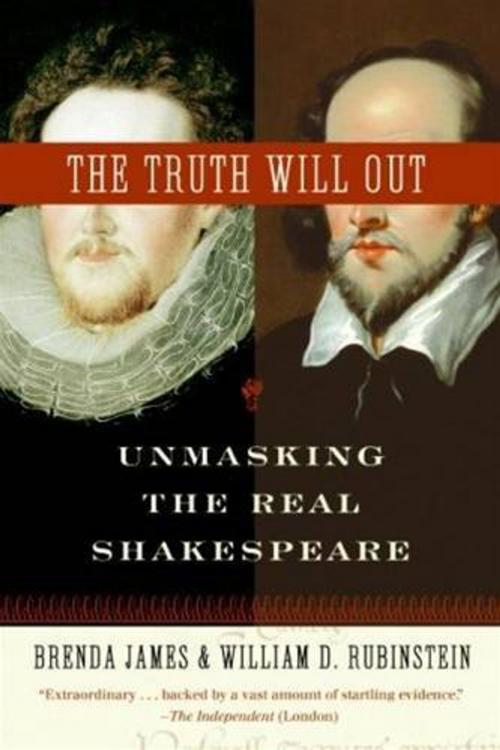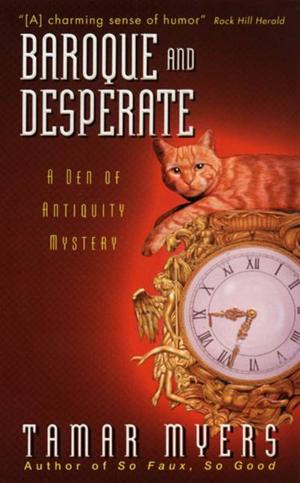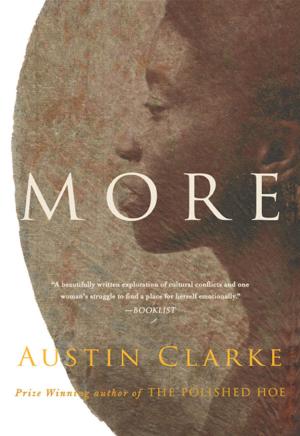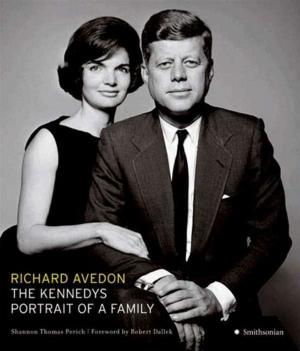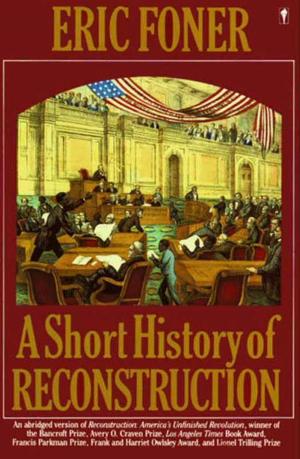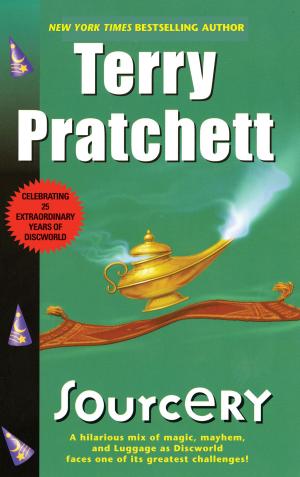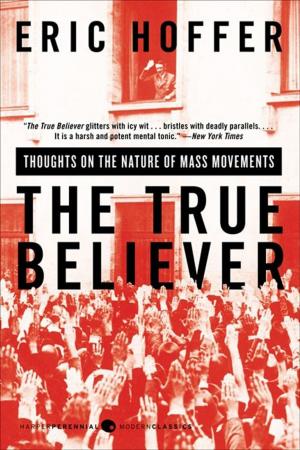| Author: | Brenda James, William Rubinstein | ISBN: | 9780061847448 |
| Publisher: | HarperCollins e-books | Publication: | October 13, 2009 |
| Imprint: | HarperCollins e-books | Language: | English |
| Author: | Brenda James, William Rubinstein |
| ISBN: | 9780061847448 |
| Publisher: | HarperCollins e-books |
| Publication: | October 13, 2009 |
| Imprint: | HarperCollins e-books |
| Language: | English |
Motivated by scholarship and driven by curiosity, Shakespeare historian Brenda James applied a sixteenth-century code-breaking technique to the dedication of Shakespeare's Sonnets. What she uncovered led her to the truth behind literature's greatest mystery.
For more than 150 years, academics have questioned how William Shakespeare of Stratford, a man who left school at age thirteen and apparently never traveled abroad, could have written such a broad and deep body of work, one that is said to draw on the largest vocabulary of any writer in the English language. Now, in The Truth Will Out James and history professor William D. Rubinstein explore the facts behind James's important findings, detailing how her work on the dedication led to the name Sir Henry Neville, a prominent Elizabethan diplomat whose life unlocked the secrets of the Shakespeare Authorship Question once and for all.
Examining the true nature of Shakespeare of Stratford's involvement with the plays, the authors reveal the London actor to be a mere pawn, while Neville, the Oxford-educated ambassador to France and a member of Parliament for twenty-eight years, was actually the Bard. Disguising his authorship to avoid bringing scandal and shame to his family name, Neville spent a great deal of time abroad in Europe, entering a realm of aristocratic intrigue and mystery that provided the foundation for some of his greatest plays. With insightful explanations of never-before-studied documents, James and Rubinstein demonstrate that not only did the refined and worldly Neville know the landscape of Shakespeare's plays firsthand but that these works represent a total convergence of the events in Neville's life.
But the evidence proving Neville's authorship is not merely circumstantial. Comparing mysterious signatures and Neville's richly woven family lineage, the authors paint a portrait of a man whose claim moves beyond the speculative. An experienced politician, who was well-versed in the intrigues of the Court, Neville was locked away in the Tower of London for his part in the unsuccessful Essex Rebellion against Queen Elizabeth. Using a collection of Neville's writings from his imprisonment, James and Rubinstein provide an exhaustive cross section of the intrigue surrounding Neville's life, exposing the events that led to his hidden writings and the cloaking of their true origin.
Captivating and elucidating, The Truth Will Out is a revelatory exploration of two men and their times that will forever change the landscape of Shakespearean scholarship.
Motivated by scholarship and driven by curiosity, Shakespeare historian Brenda James applied a sixteenth-century code-breaking technique to the dedication of Shakespeare's Sonnets. What she uncovered led her to the truth behind literature's greatest mystery.
For more than 150 years, academics have questioned how William Shakespeare of Stratford, a man who left school at age thirteen and apparently never traveled abroad, could have written such a broad and deep body of work, one that is said to draw on the largest vocabulary of any writer in the English language. Now, in The Truth Will Out James and history professor William D. Rubinstein explore the facts behind James's important findings, detailing how her work on the dedication led to the name Sir Henry Neville, a prominent Elizabethan diplomat whose life unlocked the secrets of the Shakespeare Authorship Question once and for all.
Examining the true nature of Shakespeare of Stratford's involvement with the plays, the authors reveal the London actor to be a mere pawn, while Neville, the Oxford-educated ambassador to France and a member of Parliament for twenty-eight years, was actually the Bard. Disguising his authorship to avoid bringing scandal and shame to his family name, Neville spent a great deal of time abroad in Europe, entering a realm of aristocratic intrigue and mystery that provided the foundation for some of his greatest plays. With insightful explanations of never-before-studied documents, James and Rubinstein demonstrate that not only did the refined and worldly Neville know the landscape of Shakespeare's plays firsthand but that these works represent a total convergence of the events in Neville's life.
But the evidence proving Neville's authorship is not merely circumstantial. Comparing mysterious signatures and Neville's richly woven family lineage, the authors paint a portrait of a man whose claim moves beyond the speculative. An experienced politician, who was well-versed in the intrigues of the Court, Neville was locked away in the Tower of London for his part in the unsuccessful Essex Rebellion against Queen Elizabeth. Using a collection of Neville's writings from his imprisonment, James and Rubinstein provide an exhaustive cross section of the intrigue surrounding Neville's life, exposing the events that led to his hidden writings and the cloaking of their true origin.
Captivating and elucidating, The Truth Will Out is a revelatory exploration of two men and their times that will forever change the landscape of Shakespearean scholarship.
